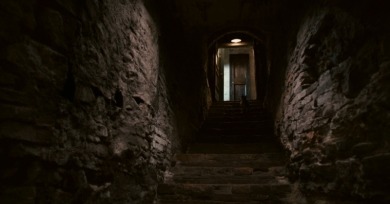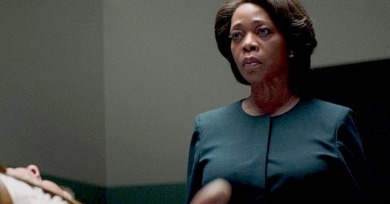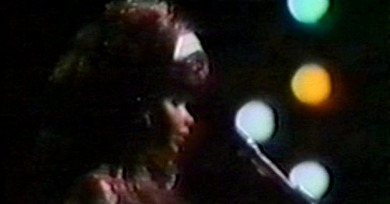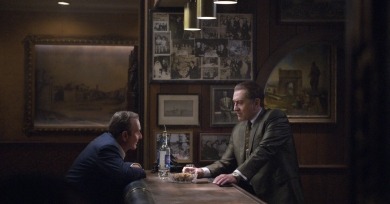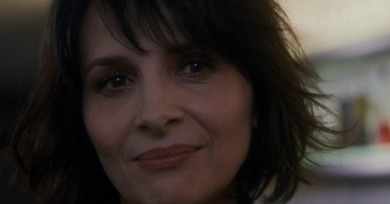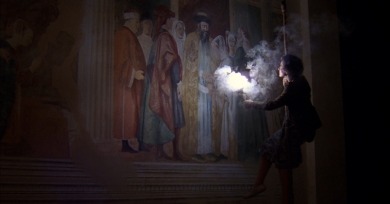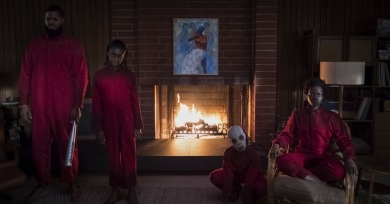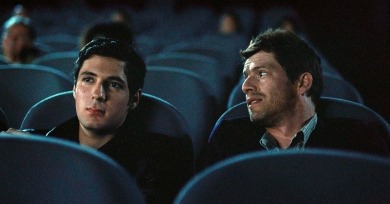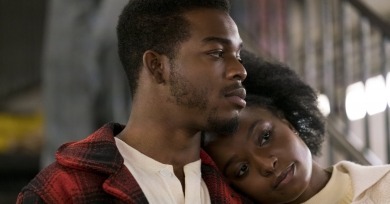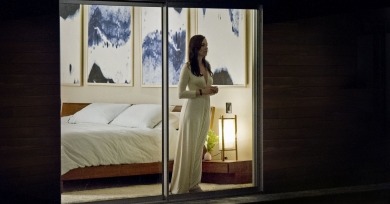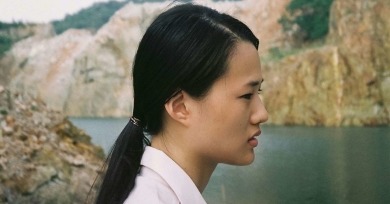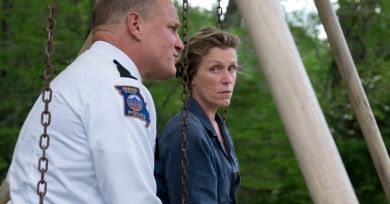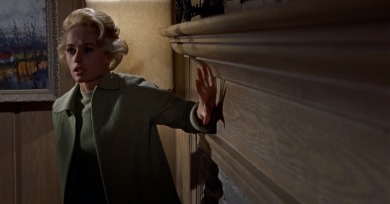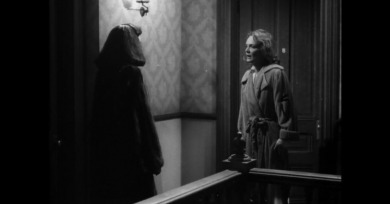Michael Koresky
No matter how much things change, movie love remains; it is always regenerating, refreshing, being passed down to new lovers.
With its air of weariness and melancholy, its shadowy interiors and images of doleful professionals going through their motions, Clemency is a sepulchral film, but Chukwu never allows for an air of distanced or rehearsed affectation.
Superstar, by design, is not something you fondly recall; like Safe, it’s a film that uses a literal disease as cover for something less medically diagnosable—a social rot so deeply entrenched that there may be no cure.
Seeking historical and temporal specificity ultimately proves fruitless, and provocatively so: The Irishman is, after all, based on an account of a subjective reality, an exactingly detailed version of one man’s perception of history, and of himself.
A Few Great Pumpkins
Unfriended: Dark Web, Penda's Fen, The Collector, Someone's Watching Me, The Queen of Spades, Angst, Amazing Stories: "Go to the Head of the Class"
She has continually brought to her roles intense dedication, as well as a methodical approach to neuroses that can toggle between effortless and effortful; some can find her showmanship off-putting, while some of us are captivated in a purely pleasurable way.
Once Upon a Time… in Hollywood is overcast with melancholy and fueled by a rueful self-determination to overcome it. It’s on the surface his simplest film, but somehow his trickiest to talk about.
Because her performance is so often located in reaction shots, and because she can charge even the smallest glance with a history of conflicted feelings, Binoche makes what might have otherwise been a rote audience double into a rich repository for all the film’s inquiries.
Peele unleashes a bevy of conceptual ideas about race, class, and American-ness that are only difficult to grasp if the viewer is not really looking. Us is supremely confident filmmaking, a thrill ride shot through with existential urgency.
3 Faces is the most freeform and expansive of the cycle of movies that has come to define the latter part of his filmography, and, crucially, it is the film that brings him back to the feminist concerns that fueled so many of his definitive earlier works.
Sorry Angel, by design, chronicles a decade of death and uncertainty yet is more driven by the emotional specificity of queer love, laying bare its conundrums without any pretensions to universalization.
Life exquisitely pours forth out of If Beale Street Could Talk, a film that seems to move on unceasing currents of emotion, of love and pain, of big heartaches and small joys, of revelations and disillusionments.
In telling her tale of the eternally disenfranchised, Rohrwacher defies standards of storytelling, character, and even time itself.
A Few Great Pumpkins
The Invitation, The Ghost Train, The Little Girl Who Lives Down the Lane, The Creature from the Black Lagoon, A Scary Time, Messiah of Evil, Panna a netvor
The past is always present, but that does not just mean that it haunts or permeates our contemporary world: the past reconstitutes and recombines our very processes, internal and external, our molecules, our narratives.
We have been publishing Reverse Shot for 15 years, and when it comes to maintaining our optimism and enthusiasm for the medium we all ostensibly love, we have had our ups and downs. But things feel hopeful as of late, both in terms of filmmaking and in film criticism.
Despite the infrastructure set in motion centuries ago to keep only whites in positions of power, Mudbound elegantly depicts how such ingrained racism only serves to aid whites in digging our own graves.
Three Billboards is the kind of momentary crowd-pleasing entertainment that will satiate audiences looking for the movie equivalent of a knee to the crotch—which not so incidentally is one of its defining images.
A Few Great Pumpkins
The Birds, Lake Mungo, Diabolique, Dead Ringers, Island of Lost Souls, The Texas Chainsaw Massacre, Martin
Made up of a series of mostly short scenes that combine into a slow bubbling up of existential terror, the film does build to an extended, if narratively abstract, climax, which is then summarily followed by a denouement that manages to conclude the story in a most willfully unsatisfying fashion, while being almost subliminal.
